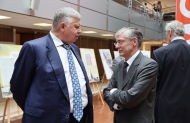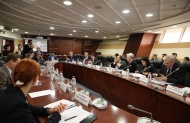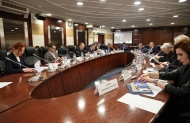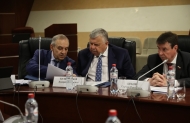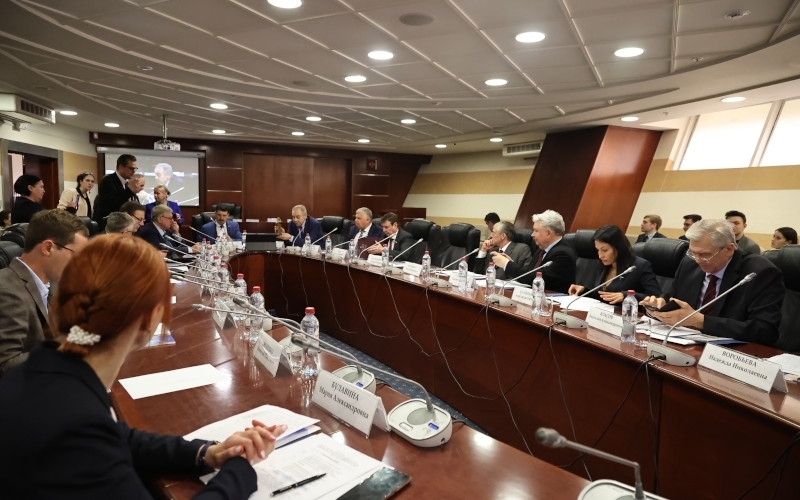
On May 2, the Secretary General of the Eurasian Peoples' Assembly Andrey Belyaninov took part in the MGIMO Round Table on the topic "The contribution of the Crimea, Taman and Kuban to the strengthening and development of the Russian state" and the Grand opening of a photo exhibition dedicated to the 240th anniversary of the territory's entry into the Russian Empire.
The annexation of Crimea, Taman and Kuban to the Russian Empire had significant consequences. On the annexed lands, economic, political and socio-cultural systems, common with the whole country, were created to ensure the development of various peoples living in these territories, having different cultures, languages and religions.
Georgy Muradov, Deputy Chairman of the Council of Ministers of the Republic of Crimea, Permanent Representative of the Republic of Crimea to the President of the Russian Federation, Head of the Representation of the Eurasian Peoples’ Assembly in the Republic of Crimea (Russia), delivered a welcoming speech at the round table.
The discussion was opened by MGIMO Rector Academician Anatoly Torkunov, noting the iconic nature of the event:
“Today it is important to turn our eyes to the history of the Crimea, Taman and Kuban. This is a unique territory where civilizations, different peoples and cultures developed, where the ancient and Byzantine heritage has been preserved.”
Leading scientists and historians discussed the role of the Crimea, Taman and Kuban in the formation of the Russian state, The legal peculiarities of the territory's entry, development and exploitation, the successes of 18th century Russian diplomacy and the historical relationship between Eastern and Western cultures in the region.
“The issue of the role of spiritual and moral values, Russian culture and historical memory, announced as one of the issues to be discussed today at the conference, is a strategic one. Due attention to domestic and foreign policy in the field of expanding the influence of Russian culture, the Russian language and education is the most important condition for modern Eurasian integration,” said Andrey Belyaninov, Secretary General of the Eurasian Peoples’ Assembly.
He also noted that today the world around us is rapidly changing. Modern conditions require qualitatively new, more effective mechanisms for solving the tasks of organizing the world community.
“These tasks can be combined into two main areas: considering the lessons of the past and the formation of joint responsibility for a common future. These two vectors of our past and our future are realized in our present through the development of education, intercultural relations, information and humanitarian exchanges, as well as joint intergovernmental and non-governmental projects,” Andrey Belyaninov continued.
The Secretary General of the Eurasian Peoples' Assembly spoke about the main activities of the Eurasian Peoples' Assembly, emphasizing that, today, the organization is driven by a perceived need to strengthen integration processes at a societal level:
“Regardless of our beliefs, national, state priorities, we recognize the spiritual unity of all the peoples of the world, respect their personal rights, statehood, freedoms, languages, beliefs, traditions, customs, culture, ethnic identity ... In the main, we are all one. But this is main thing, given the diversity of our views, thoughts and opportunities, we implement in our lives in different ways. That is why we first need to learn to understand and accept each other".



